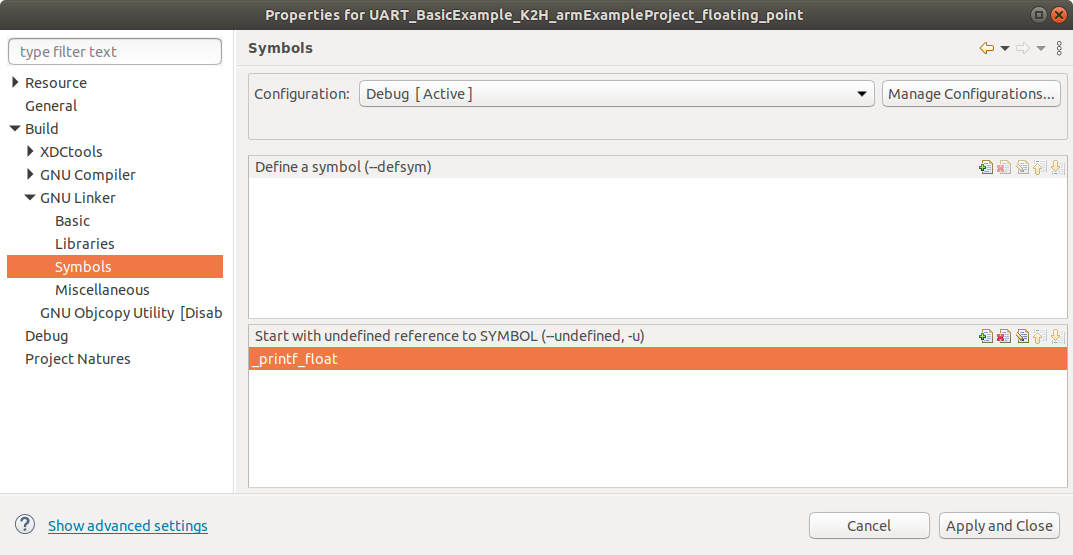Part Number: 66AK2G12
Other Parts Discussed in Thread: 66AK2H14
Tool/software: Code Composer Studio
Hi Team,
I am using the 66AK2G12 processor and running TI-RTOS in the ARM core.
As a part of requirement I am using float variable to hold a floating point numeral.
The floating point operations are working good on the processor without having any issues. I tried to compare two fractional numbers in an IF condition and no issue was reported.
But when I try to print the value using UART_printf(), I could find "ERROR" getting displayed in place of the fractional number.
I even tried to use sprintf() to store the floating point number number as a string and then tried to print that string using UART_printf(). Still the number is not getting displayed.
I even tried to pass the hard-coded floating value into sprintf as shown below.
char val[20];
sprintf(val,"\nTEMP VALUE = %f",(1.8765));
UART_printf("\n%s",val);
But I am getting the following output.
TEMP VALUE =
The numbers are not getting displayed.
So kindly let me know how I can print the fractional numbers via UART in CCS for the 66AK2G12 processor.
Thank You.
With Regards,
Krishna.



